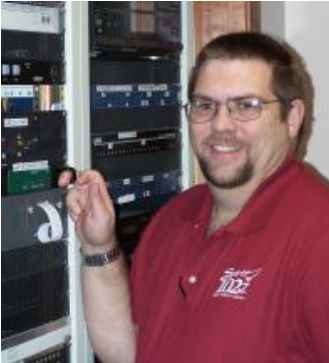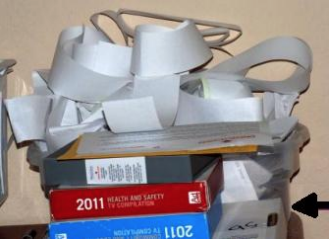Keeping Control of Your EAS Logs

[July 2018] FCC Rules require that broadcast stations receive and log two EAS tests a week, and send and log one test a week. For most stations strips and rolls of paper have been replaced with data files in the EAS boxes. But the requirement to receive/send/log/review remain.
Reports from the field indicate a large number of stations that do not do this as required. Tests are missed and, often, the weekly review is not signed off.
After seeing a rather unfortunate example of EAS log keeping, Mark Voris decided to share his system with others.

Note arrow pointing at the bottom of pile of printouts
Although most of the EAS boxes today keep the data for tests and receptions in memory, there is a tendency to just leave it there, Yet, with the Enforcement Bureau (EB) looking at EAS logs and operations very closely I would not want to be in the shoes of any station whose records are incomplete or missing when an inspector comes calling. It is not the inspector’s chore to pull data from the EAS box. It should be on hand for inspection.
In the spirit of helping others, I would like to share a picture of my EAS Log. (The actual file is located here.)
It consolidates a month’s tests and receptions on one page, along with the review signatures.
Some stations with tower lighting have added lines for logging the daily inspection and combined this into a Station Log.
This format has been found to work very well for us. We participate in the Volunteer Alternate Broadcast Inspection Program and I have been complemented on the way I maintain the EAS logs.
By the way, with the implementation of the National Periodic Tests (NPT) each fall, the NPT has been added to the abbreviations. For the convenience of the BDR readers, I have prepared this as Excel spreadsheet with a blank log that anyone can customize with their station’s call sign and use freely. As mentioned before, it can be found here.
Of course, this form is subject to any Part 11 changes that might be made by the FCC. However, since it is a spreadsheet, any such changes or additions to the form should be easy to make.
– – –
Mark H. Voris is the Chief Engineer for KVSS and The Spirit Catholic Radio Network in Omaha, NE. Mark’s email address is: mark@kvss.com
